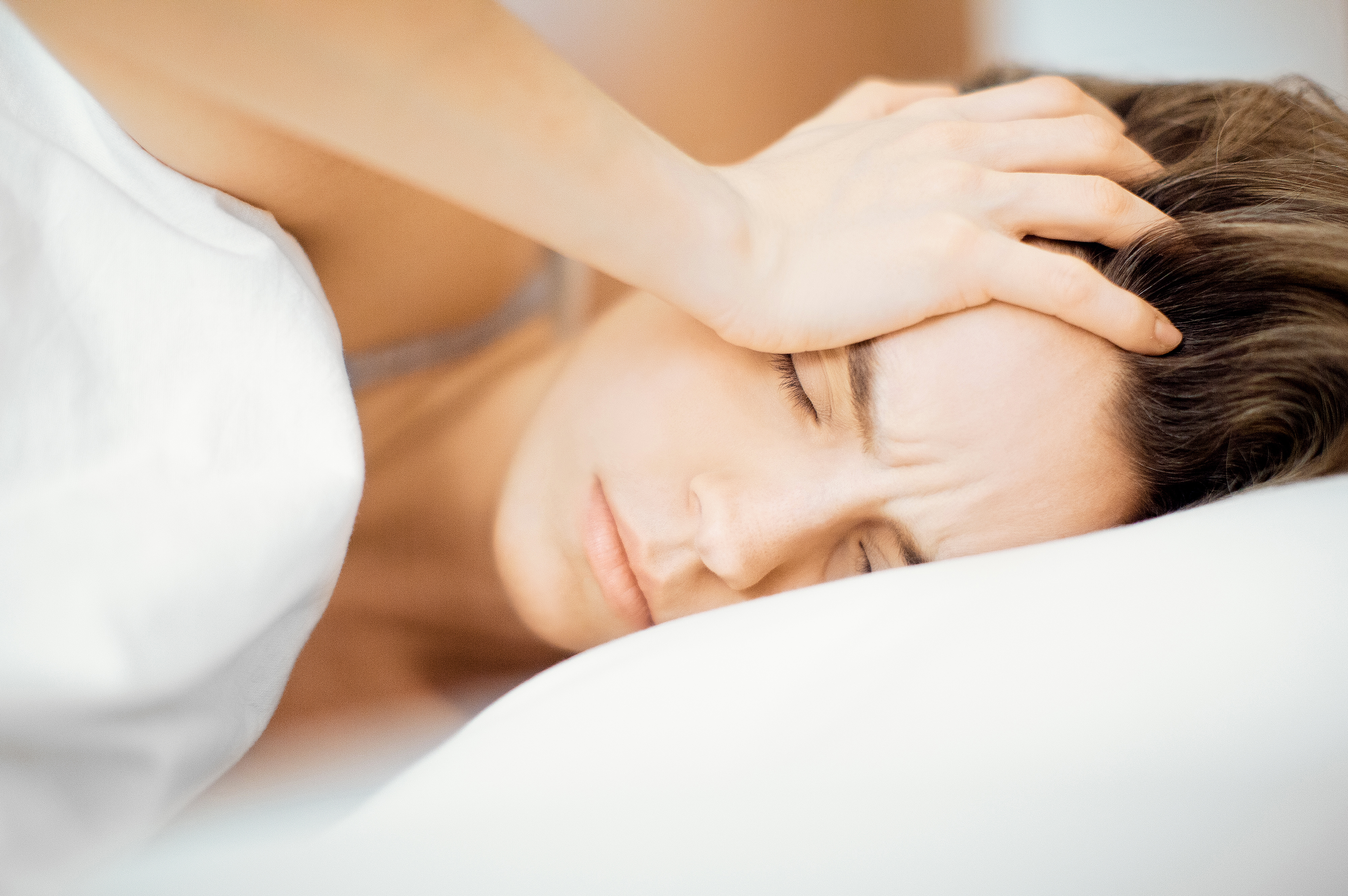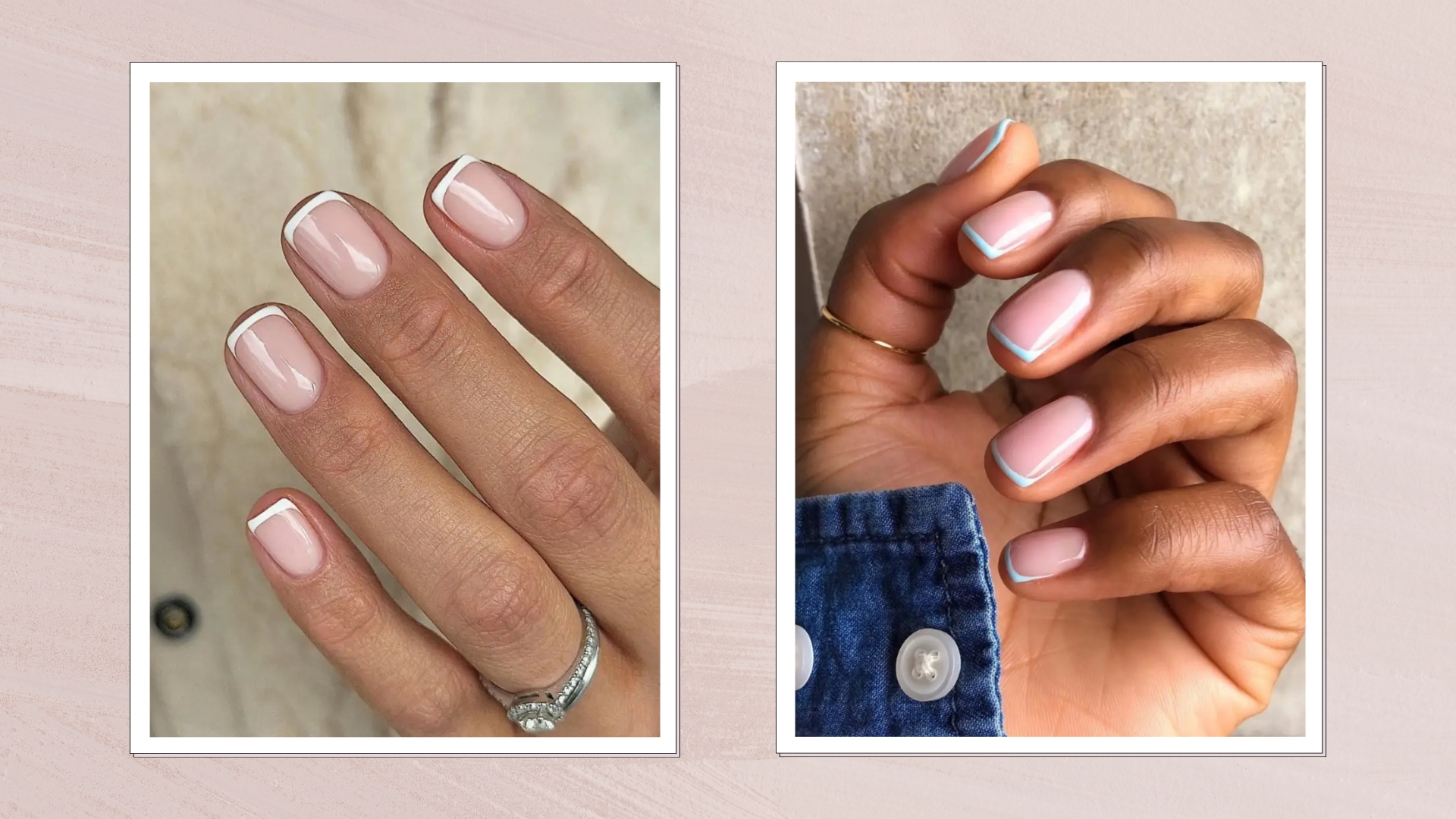8 causes of tension headaches - and how to beat them
Tension headaches are incredibly common, but for some people they can be debilitating. Find out why you might get them and how to tackle them...

Tension-type headaches are what most of us are referring to when we talk about having a headache.
According to the NHS, these are the types of headaches that most of us are likely to get at some point in our lives, and for some people, they're a much more regular occurrence. It's reported that one in 30 adults suffer from chronic tension headaches, which mean they experience them more than 15 times a month, for three months in a row.
Symptoms include a constant ache on both sides of the head, a "band-like" sensation of tightness around the head, and a tight neck and pressure behind the eyes. Sound familiar?
MORE:Our round-up of the best CBD oils on offer - to help with stress and anxiety
Tension headaches can last for as short a time as 30 minutes, but for some, they may linger for several hours, or even several days.
The severity can also vary hugely, almost most tension headaches shouldn't stop you from going about your daily activity. However, for some people, they can feel incredibly painful and uncomfortable - requiring them to take action.
Difference between headache and migraine:
While tension headaches can feel severe, they normally present a different set of symptoms to a migraine. Migraines may often be accompanied by an 'aura' - disturbances in your vision or tingling in your face and hands. While a tension headache is felt all over, a migraine is usually only on one side of your head. And for many, migraine symptoms usually include a feeling of nausea and often vomiting, as well as a serious sensitivity to light and noise. Migraines normally prevent sufferers carrying out their every-day life.
Sign up for the woman&home newsletter
Sign up to our free daily email for the latest royal and entertainment news, interesting opinion, expert advice on styling and beauty trends, and no-nonsense guides to the health and wellness questions you want answered.

Causes of tension headaches:
Tension headaches are caused by tender neck and head muscles. These muscles tend to tighten when we come under physical or psychological stress.
But there are plenty of other things that may trigger them, and you may not even be aware of them...
1. Taking too many painkillers
They're often the saviour for people who suffer regular headaches, but it turns out that taking painkillers, such asibuprofen, paracetamol and aspirin, more than two or three times a weekcould actually result in headaches.
NHS Neurologist Manjit Matharu carried out research exploring the connection, and found that 1 in 50 people experience headaches based on medication overuse, and that women are five times more likely to get these kind of attacks than men. Apparently, using painkillers too often for every day tension headaches can reduce their effectiveness.
NICE are now suggesting that GPs consider medication overuse as a cause of tension headaches. So if you notice yourself taking more than normal, it may be an idea to consider cutting down.
MORE:This is how your handbag could be damaging your health - and how you can fix it
2. Your handbag
Manyof us jam our bags full of things we need for the day, but did you knowthat your handbag should weigh less than 10 per cent of your bodyweight? Carrying excess weight can put your body under stress. If youwear the same bag on the same shoulder every day, it can put a lot ofstrain on your neck and shoulders, which can rise up through your body and turn in to tensionheadaches.
Using a backpack to take the pressure off your shoulders orlightening the load of your bag are measures you can take to preventthese tension headaches.
3. Dehydration or missing meals

Dehydration can sneak up on us quickly, and sometimes we can already be dehydrated by the time we feel thirsty again. But not drinking enough water (the recommended eight a day), or getting in enough food can make it harder for oxygen and blood to reach our brain, leaving us with a tension headache.
Headaches caused by dehydration can be identified by pain when moving the head - usually activity will make the headache feel worse.
Try to stay as hydrated as possible, drinking a big glass of water as soon as you wake up, when you're most likely to be dehydrated, and eat small, regular meals or healthy snacks every 3-4 hours. If a headache strikes, try drinking a glass of water (around 200-250ml) every 15 to 20 minutes until the pain subsides. Also try and avoid caffeine - while tea and coffee are liquids, they act as diuretics, causing you to lose water instead of retain it.
4. Poor sleep
In the same way that not getting enough sleep can exacerbate a range of health issues, such as anxiety, stress, and poor mental health, it can also have an effect on headaches - namely, causing them, or making them worse.
While the link has been studied for decades, it's unclear why a lack of sleep can trigger headaches, only that it's a regular occurrence for some.
But good sleep habits can help to combat the problem. Practise a wind-down routine. Try not to use your phone after dinner, using the time to read, practise some gentle yoga, meditate or take a bath, instead. Make sure your bedroom is dark and not too hot or cold, and try to keep it solely for sleeping. It could also help to ensure your pillows aren't too high or too low, causing cricks in the neck that could contribute to the problem. Browse our pick of the best pillows for a pain-free night's sleep here.
5. Stress

When we get stressed or anxious, we tend to hold a lot of our anxiety in our bodies without noticing. Whenever you next feel overwhelmed, take not. Are your shoulders raised, or hunched over, instead of relaxed at your side? Is your jaw clenched?
With all of the tension in your muscles, it's no surprise that stress can quickly turn into a headache. So how can we tackle it?
Only you know the cause, but taking time out to practise mindfulness can help. Practising mindfulness meditation on the way to and from work has been found to benefit some people. Try the Headspace app, which is great for inexperienced meditators. Other lifestyle factors can help too, such as regular exercise, taking regular breaks, or seeking support in the frame of therapy or counselling.
MORE:An explanation for breast pain, joint pain and other common aches in menopause
6. Eye Strain
Eye strain is a common condition, and can happen when we've spent too long focusing on one thing, such as driving or, more often, staring at our digital devices such as our work computer screen or phone.
While it's a rare cause of tension headaches, it can happen, but regular screen breaks can help.If you spend a lot of time at a computer, look away from the screen regularly, focusing on the middle distance. Check brightness, contrast and text size are set to optimum levels. If your headaches are frequent, have an eye test - an optician may be able to advise on better ways to handle eyestrain.

7. Bad posture
Put simply, slouching, sitting uncomfortably, or having bad posture whilst walking can create tension in your upper back and shoulders. And these tension can then easily lead to a headache, as the tension travels up towards your head.
When walking, make sure your shoulders aren't pulled forward, and ensure that your seated position sees you sitting up straight. It's equally important to make sure you aren't sat in one spot and position for too long - move around and exercise often.
8. Bright lights, loud noises and extreme temperatures
Environmental triggers may cause tension headaches for some people. If you've ever noticed a strong perfume triggering discomfort, or a headache when it's particularly humid outside - you could well be one of these people.
Pressure changes when the weather shifts - e.g before a storm, or in high humidity or hot weather - trigger chemical and electrical changes in the brain, according to the NHS. The changes irritate nerves in your brain, leading to a headache.
Strong smells and bright lights can also aggravate chemicals in your brain, causing tension headaches.
Try to minimise your exposure to environmental triggers wherever possible. If you are sensitive to noise, ear plugs and/or sound isolating headphones may help. If bright lights are a trigger, wear a hat and sunglasses on sunny days and consider installing dimmer switches at home. If changes in temperature bother you, experiment with layered clothing and try carrying a small hand-held electric fan.
Are you a migraine sufferer? Discover new ways to end the misery of migraine.
But most importantly, if you're suffering regular tension headaches or migraines, be sure to visit your GP to see if there are any underlying conditions which may be causing the problem - or if there are any options they can suggest to help.
Amy Hunt is an experienced digital journalist specialising in homes, interiors and hobbies. She began her career working as the features assistant at woman&home magazine, before moving over to the digital side of the brand where she eventually became the Lifestyle Editor up until January 2022. Amy won the Digital Journalist of the Year award at the AOP Awards in 2019 for her work on womanandhome.com.
-
 We're in awe of Sienna Miller's easy-going and 'piece-y' hairstyle and how perfect it is for spring
We're in awe of Sienna Miller's easy-going and 'piece-y' hairstyle and how perfect it is for springThis laid-back hairstyle is - quite literally - making waves this season
By Naomi Jamieson Published
-
 We never thought we'd see this 'dated' manicure make a chic comeback, but here it is - and we're on board
We never thought we'd see this 'dated' manicure make a chic comeback, but here it is - and we're on boardClean and angular, short square French tips are a go-to this season for a practical but stylish manicure...
By Naomi Jamieson Published
